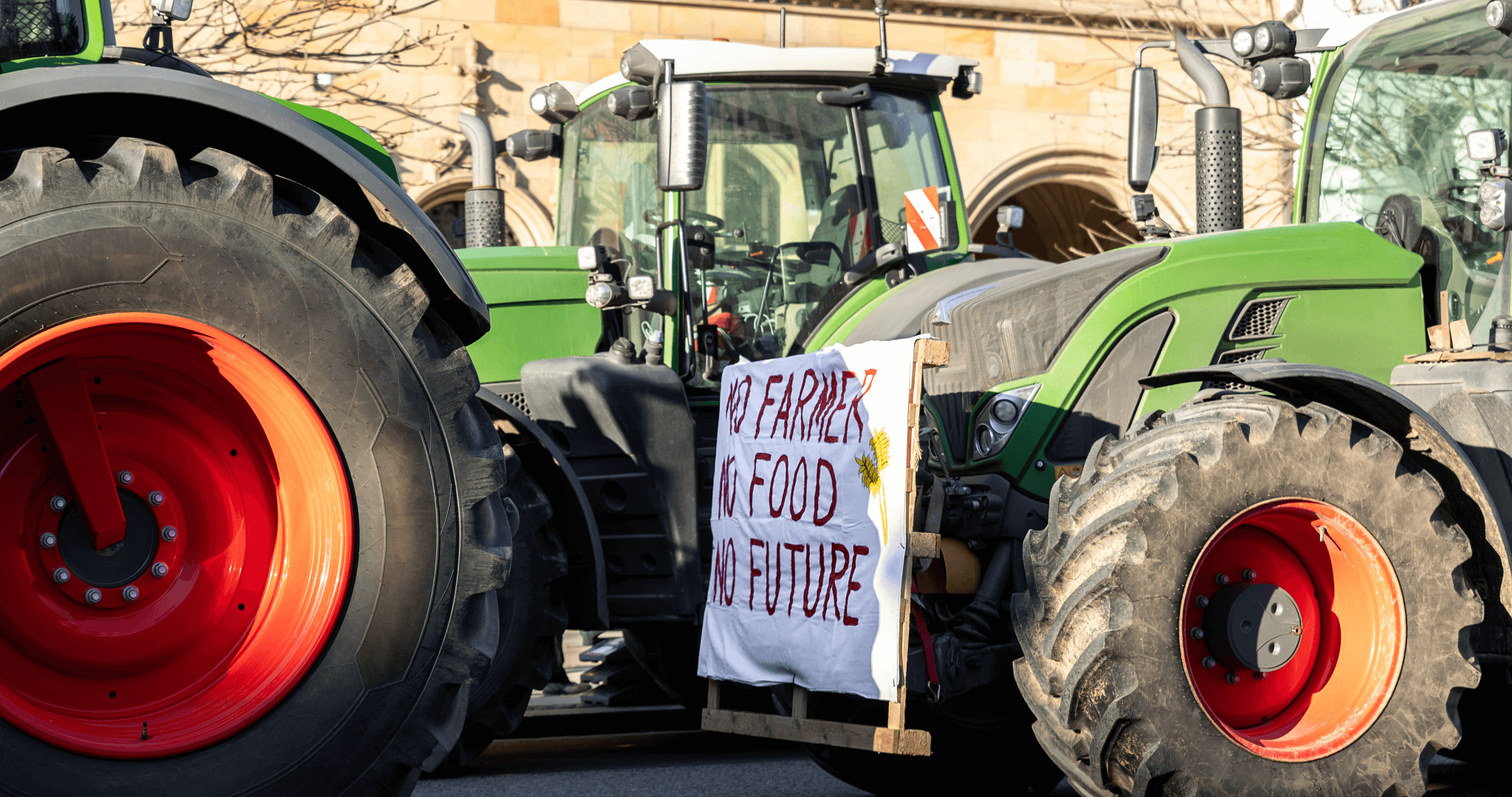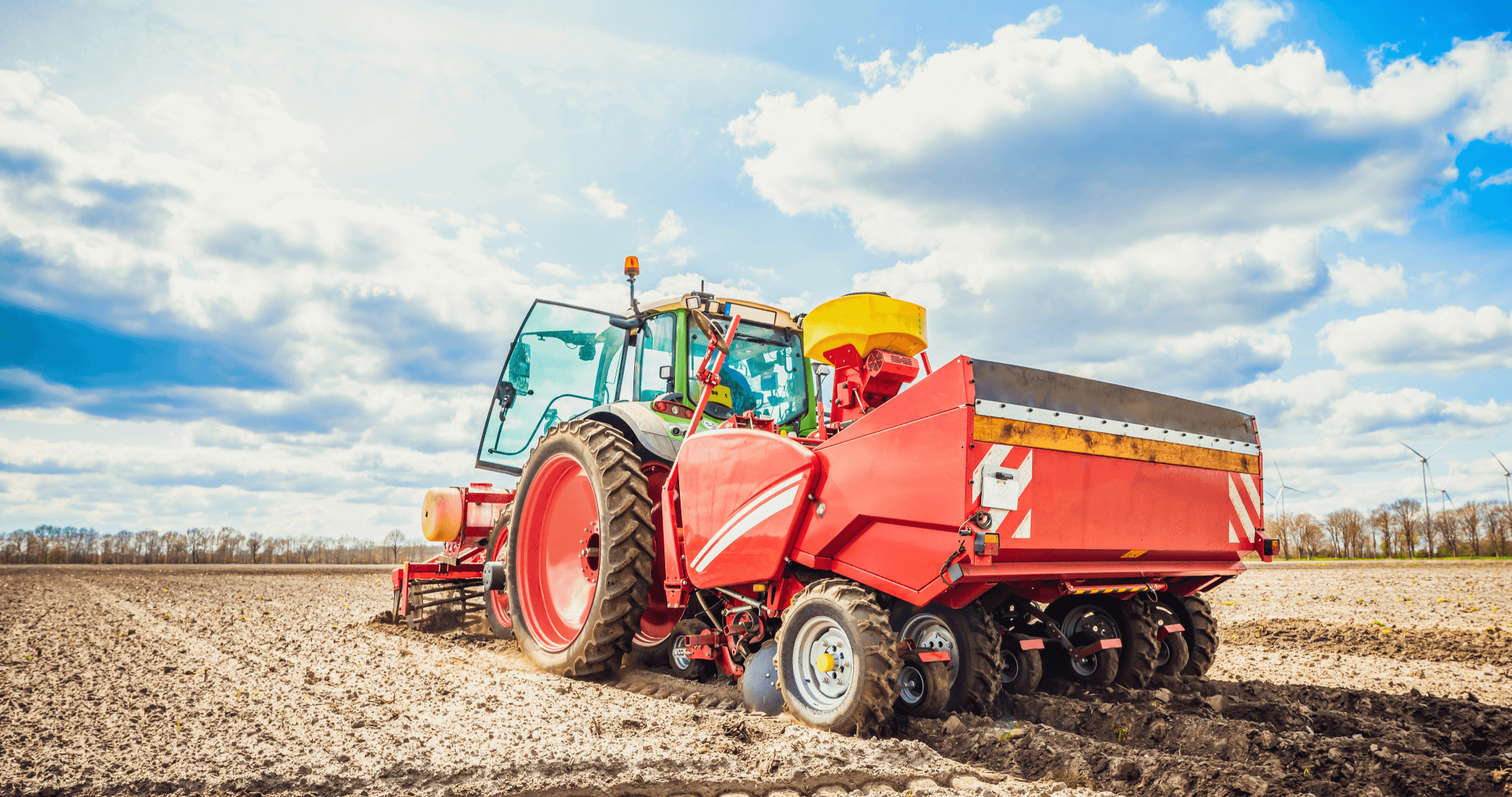The German Farmer Blockades and Their Strategic Impact on the German National Economy
Posted by Emily on 15th Jan 2024 Reading Time:
Nationwide protests by German farmers involving road blockades with tractors have escalated tensions for Chancellor Olaf Scholz's government. The farmers are protesting against planned subsidy cuts, particularly the phasing out of tax breaks on agricultural diesel, a decision stemming from the government's efforts to reconcile its budget following a constitutional court ruling. The protests in freezing temperatures in almost all 16 federal states have caused significant disruptions, including traffic jams and halting production at Volkswagen's plant in Emden.

Vice Chancellor Robert Habeck has highlighted the potential for these protests to be co-opted by extremist groups. With banners displaying slogans like "No beer without farmers" and some support from the far-right Alternative for Germany (AfD) party, there's a growing concern about the political dimensions of these protests. Farmers like Bavarian Ralf Huber have expressed dire financial concerns, citing substantial losses due to the proposed changes.
The government's struggle to maintain fiscal discipline while addressing the protests has led to a delicate balancing act. Although the coalition has made some concessions, such as retaining the vehicle tax discount for farmers and phasing out the diesel subsidy more gradually, the German Farmer's Association considers these measures to be insufficient.
The protests have intensified political pressure on Scholz's coalition, which is already strained by differences in budget priorities among its members and facing recession challenges. The AfD's rising popularity in polls adds another layer of complexity. Security officials, including Stephan Kramer, head of the domestic intelligence agency in Thuringia, have warned of the dangers of far-right groups exploiting the protests, citing past instances of similar strategies.
Amidst these challenges, the German economy faces difficulties, with predictions of being the only G7 economy to have shrunk in 2023. High energy costs, weak global demand, and high interest rates have contributed to this situation. The government's struggle to implement structural reforms and fill a significant funding gap in its budget further complicates the scenario.
In conclusion, the farmer protests in Germany symbolise a broader context of economic challenges and political unrest. Regional elections are looming, and tensions within the ruling coalition remain dynamic and uncertain.
Did you know?
Farming is crucial in the German economy, particularly in international trade. As of 2021, Germany was the third-largest importer and exporter of consumer-oriented agricultural products worldwide, trailing only China and the United States. It is also notably the most significant European market for foreign farm producers.

The agricultural sector in Germany is characterised by its consolidation, market saturation, and strong competition, leading to generally low food prices. German consumers spend about 14% of their income on food and beverages, which is relatively low compared to other European countries. This sector also sees a growing trend in fair trade and organic products. Germany is the second-largest organic market globally.

